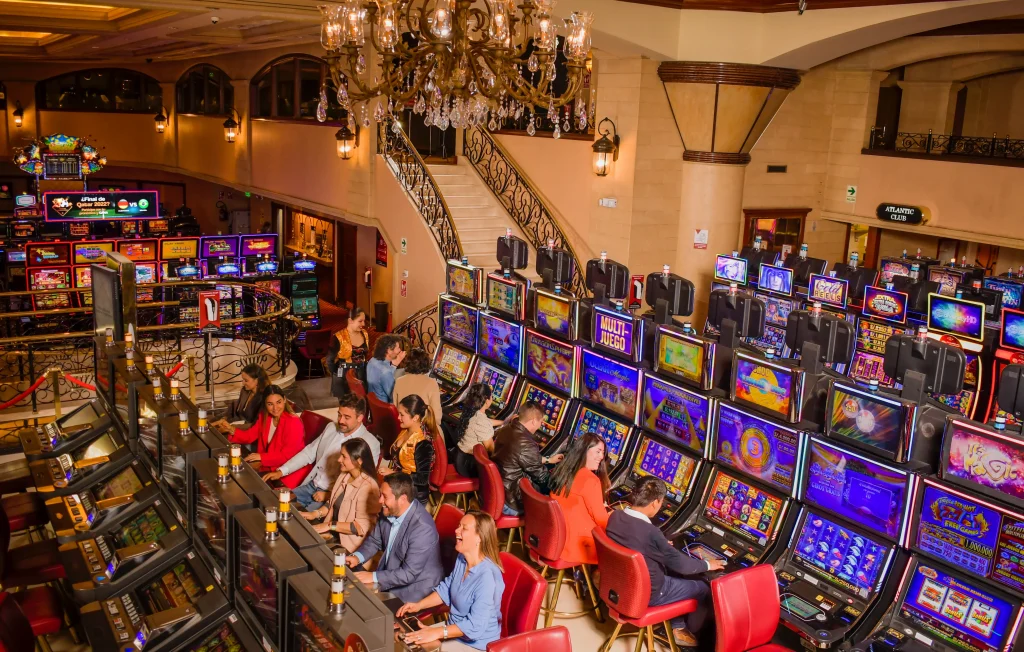The Progression of Gambling Games Through the Years

Casino games have fascinated players throughout history, evolving from easy diversions to sophisticated forms of entertainment that combine fortune, tactics, and fun. From the historical origins of gambling in civilizations such as Mesopotamia and Rome to the extravagant corridors of contemporary casinos, the evolution of these games reveals much about the human experience and our connection with chance. As societies have intertwined and innovation has progressed, casino games have changed, mirroring the changes in society and developments in gameplay.
The primitive versions of gambling likely featured basic dice-based games and betting on the outcomes of sporting events. Through the years, these primitive activities grew into better-organized games like playing card games, the game of roulette, and the variety of one-armed bandits that line the floors of casinos today. Every generation brought its unique rules, visual styles, and sociocultural significance. In the current era, casino games persist in evolving with the rise of digital gaming platforms, enabling players from all corners of the globe to engage in a collective experience, further blending the traditional with the modern era.
Early Origins of Gambling Games
Gaming games have origins that stretch back to ancient societies, where wagering was strongly embedded in social practices and social rituals. The initial known forms of betting emerged in Mesopotamia around 3000 BC, featuring basic dice games made from knuckle material. These early games laid the groundwork for more complex gambling games, demonstrating human beings' instinctive desire to seek wealth and amusement through chance.
As societies progressed, so did their gambling pursuits. In ancient China, around 2300 BC, tiles were discovered that looked like primitive rudimentary versions of a lottery activity. More structured instances of gambling emerged in the ancient Roman civilization, where games of luck were a frequent pastime, often occurring in community events. The Romans developed various betting games, which composed dice and board games, highlighting the widespread nature of betting across various economic classes.
With the movement of years, these primitive activities shaped the evolution of contemporary gambling games. In the Middle Ages, card activities emerged prevalent in Europe, paving the way for the organized gambling venues we know today. The change from informal betting to organized gaming in taverns and personal houses marked a major change in how people engaged with activities of chance, leading to the eventual creation of gaming houses as specialized venues for gambling.
The Growth of Current Gambling Industry
The late 20th century marked a pivotal transition in the realm of gaming, propelled by technological advancements and changes in cultural attitudes towards betting. The emergence of computers and the World Wide Web revolutionized the way players engaged with their favorite gaming experiences. Online casinos emerged, enabling enthusiasts to enjoy traditional table games like poker and 21 from the safety of their homes. This new online environment not only broadened access to casino games but also drew in a fresh audience who found the ease and variety tempting.
As online gaming gained traction, so did advancements in casino tech. UK casino not on GamStop The advancement of sophisticated software and graphics transformed classic casino games into captivating adventures. Players could now interact with live live dealers through live feeds, importing the atmosphere of brick-and-mortar casinos directly into their houses. This fusion of in-person play with digital interfaces created a unique hybrid experience that boosted the social aspect of gambling, making it possible for individuals to engage and challenge with fellow gamers around the planet.
Additionally, the emergence of mobile gaming significantly changed the casino landscape. With the widespread use of mobile phones and touch devices, gamblers can access their beloved casino games anywhere, at any time. Mobile apps offer a vast array of games customized for mobile screens, serving the fast-paced lifestyle of modern users. This availability has led to rising engagement in casino games, driving the rapid expansion of the gambling sector. As a result, the outlook of the gaming industry continues to progress, adapting to new technologies and changing player expectations.
How Technology Influences Casino Games
Technology's advancement has significantly transformed casino games, improving the overall experience for players for gamblers globally. With the introduction of the internet, online casinos were created, allowing players to play their preferred games from the safety of their own homes. This change not only made casino games more accessible but also increased the variety of games available, as online platforms could host numerous variations of traditional games without the physical constraints of brick-and-mortar establishments.
Mobile technology further transformed the casino gaming landscape. As smartphones and tablets became widespread, players can to play casino games anytime and anywhere. This mobility has led to the development of dedicated mobile applications and optimized websites that provide seamless gaming experiences. Additionally, advancements such as live dealer games have delivered the genuine feel of a casino into players' homes, bridging the gap between physical and online gaming.
Furthermore, advancements in AI and VR are leading to the next generation of casino games. AI improves game design and player interaction, creating tailored experiences based on user behavior and preferences. Meanwhile, virtual reality provides immersive environments where players can interact in a virtual casino environment, making the gaming experience more engaging and lifelike. As technology continues to evolve, the future of casino games seems bright, filled with endless possibilities for innovation and entertainment.
